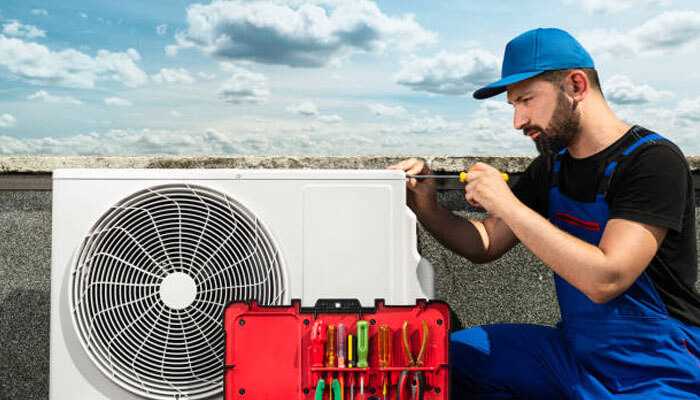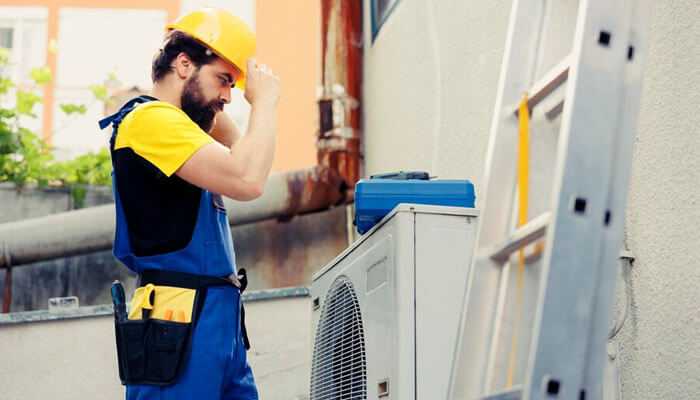As the summer heat rolls in, ensuring your air conditioning system is in top-notch condition becomes a priority. When it comes to AC repair, having the right like the AC repair toolkit can make all the difference in providing efficient and effective service. In this guide, we’ll explore how the perfect toolkit can optimize AC repair, enabling technicians to tackle any issue with confidence and precision.
The Expertise of AC Repair Technicians:
According to HVAC company owner, AC repair technicians are highly skilled professionals who specialize in diagnosing and fixing issues with air conditioning systems. They undergo rigorous training and certification programs to acquire the necessary knowledge and expertise in HVAC (Heating, Ventilation, and Air Conditioning) systems. These technicians are well-versed in the inner workings of various AC units, including central air systems, ductless mini-splits, and window units. For residents seeking AC repair in Fort Myers, these skilled professionals ensure reliable and efficient service to keep cooling systems running smoothly.
With their in-depth understanding of refrigeration principles, electrical systems, and mechanical components, AC repair technicians can identify and address a wide range of issues, from faulty compressors to refrigerant leaks. They utilize diagnostic tools and equipment to pinpoint problems accurately, ensuring prompt and efficient repairs. Additionally, AC repair technicians stay updated on the latest industry trends and technologies to deliver cutting-edge solutions to their clients.
Qualifications for AC Repair Certification:
Becoming a certified AC repair technician requires a combination of education, training, and hands-on experience. Most states have specific licensing requirements for HVAC professionals, which typically include completing a formal training program and passing a certification exam. These programs cover essential topics such as refrigeration principles, electrical systems, HVAC troubleshooting, and safety protocols.
In addition to formal education, AC repair technicians often participate in apprenticeship programs or on-the-job training to gain practical experience in the field. As mentioned by one HVAC and AC service, this hands-on training allows them to develop the skills and expertise needed to tackle real-world repair scenarios confidently. Moreover, many technicians pursue continuing education opportunities to stay abreast of industry advancements and maintain their certification.
By obtaining AC repair certification, technicians demonstrate their commitment to excellence and professionalism in the field. Certification not only validates their skills and knowledge but also instills trust and confidence in clients seeking reliable AC repair services. With the right qualifications and expertise, AC repair technicians can deliver exceptional service and ensure optimal performance and longevity of air conditioning systems.
Essential Tools for AC Repair:
A well-equipped toolkit is essential for AC repair technicians to perform their jobs effectively. Here are some of the must-have tools for optimizing AC repair:
Manifold Gauge Set:
This tool is used to measure the pressure of refrigerant gases in the AC system, allowing technicians to diagnose issues such as leaks or improper cooling.
Multimeter:
A multimeter is used to measure voltage, current, and resistance in electrical circuits, helping technicians troubleshoot electrical problems in the AC unit.
Leak Detector:
This device is used to detect refrigerant leaks in the AC system, preventing environmental damage and ensuring efficient cooling.
Refrigerant Recovery Machine:
When servicing the AC system, technicians use a refrigerant recovery machine to safely remove and store refrigerant gas, complying with environmental regulations.
Tube Bender:
A tube bender is essential for shaping copper tubing used in AC systems, ensuring precise fittings and connections.
Cordless Drill:
A cordless drill is handy for removing and installing screws, bolts, and fasteners during AC repair tasks.
Pipe Cutter:
This tool is used to cut copper tubing to the required length, facilitating the installation of new components in the AC system.
Adjustable Wrench:
An adjustable wrench is versatile for tightening or loosening nuts, bolts, and fittings in the AC unit.
Vacuum Pump:
A vacuum pump is used to evacuate moisture and air from the AC system before charging it with refrigerant, ensuring optimal performance and efficiency.
Safety Gear:
AC repair technicians should always wear personal protective equipment, including gloves, safety glasses, and respiratory protection, to prevent injuries and exposure to hazardous materials.
By investing in high-quality tools and equipment, AC repair technicians can enhance their efficiency and productivity, delivering superior service to their clients. A well-equipped toolkit enables technicians to diagnose and resolve AC issues quickly and effectively, minimizing downtime and ensuring customer satisfaction. In addition to the essential tools mentioned, AC repair technicians often rely on specialized diagnostic equipment to identify issues accurately and efficiently. Instruments such as multimeters, refrigerant leak detectors, and thermal imaging cameras enable technicians to pinpoint problems with precision, saving time and minimizing disruptions for the client.
Furthermore, the use of advanced technology, such as smart thermostats and HVAC system analyzers, allows technicians to offer proactive maintenance and energy-saving solutions to their customers. By staying abreast of the latest tools and technology in the industry, AC repair professionals can enhance their diagnostic capabilities and provide comprehensive solutions tailored to the specific needs of each client.
Conclusion:
In conclusion, optimizing AC repair with the perfect toolkit is essential for delivering high-quality service and ensuring the optimal performance of air conditioning systems. AC repair technicians leverage their expertise and qualifications to diagnose and resolve issues promptly, providing clients with reliable solutions to their HVAC needs. By investing in the right tools and equipment, technicians can enhance their efficiency and effectiveness, delivering superior service and ensuring customer satisfaction. With the right qualifications and a well-equipped toolkit, AC repair technicians are equipped to tackle any repair challenge and keep their clients cool and comfortable year-round.
In addition to the technical expertise and tools, effective communication and customer service play a pivotal role in the success of AC repair professionals. Building trust and rapport with clients fosters long-term relationships and referrals, which are vital for business growth and sustainability. By prioritizing clear and transparent communication, technicians can ensure that clients are well-informed throughout the repair process, from diagnosis to resolution. Moreover, attentive customer service, such as timely responses to inquiries and courteous interactions, enhances the overall experience and reinforces the professionalism of the service provider.
Ultimately, by combining technical proficiency with exceptional customer care, AC repair professionals can differentiate themselves in the competitive market and establish themselves as trusted partners in maintaining indoor comfort and air quality.




